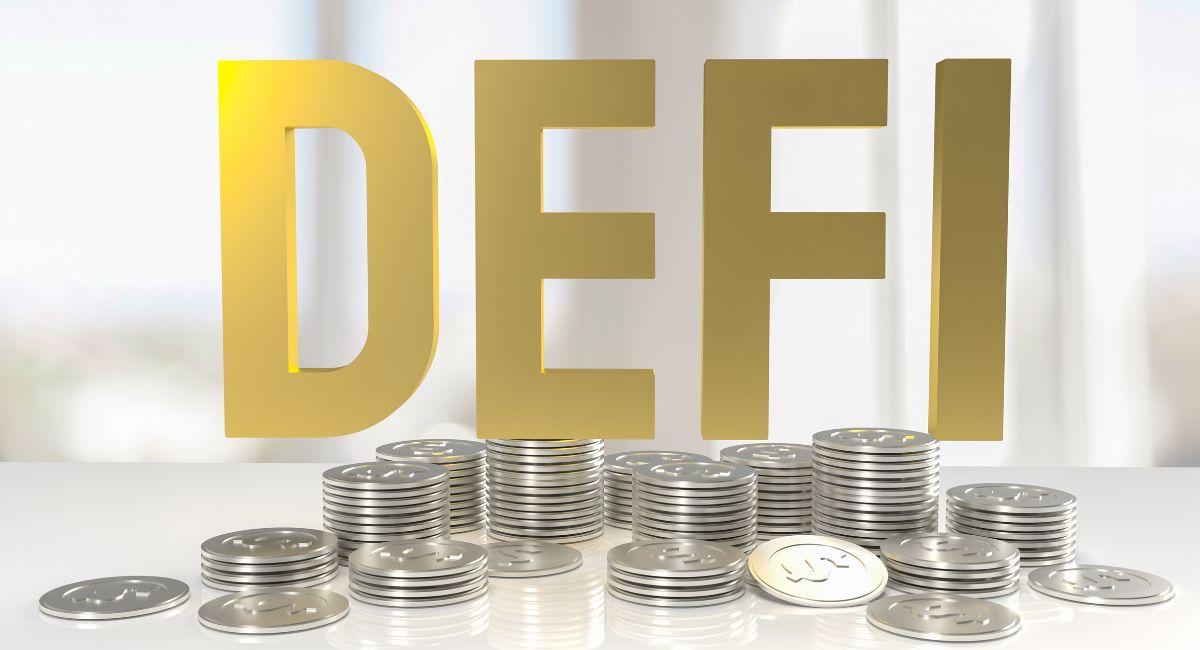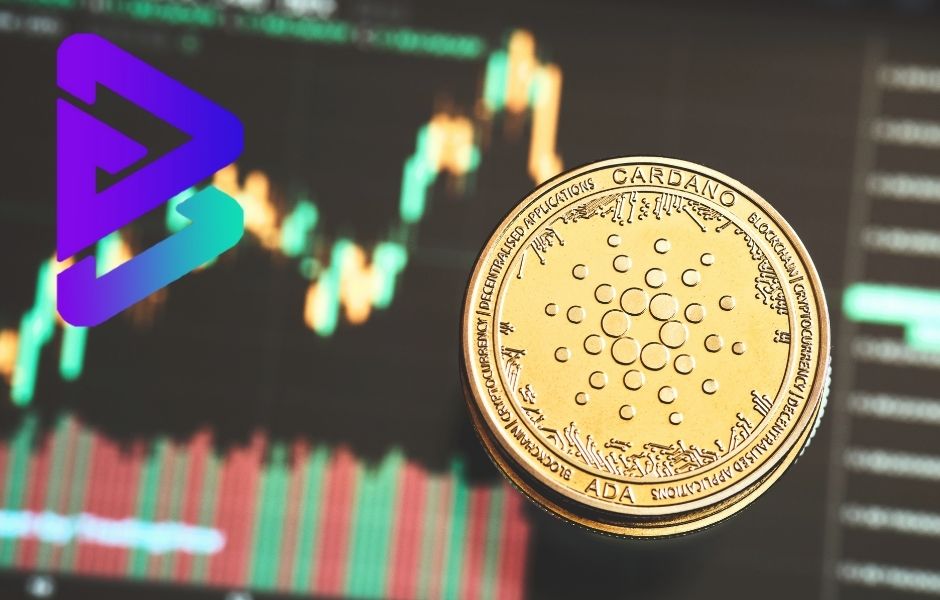Top 10 Amazing Ways DeFi Is Thriving In The Digital Age Without Any Support
Decentralized Finance, commonly known as DeFi, refers to a financial ecosystem built on blockchain technology that aims to democratize and decentralize traditional financial services. In DeFi, financial transactions and services are conducted without the need for intermediaries such as banks or financial institutions. Instead, smart contracts, which are self-executing contracts with the terms of the agreement directly written into code, automate and facilitate transactions on decentralized networks.
One of the fundamental principles of DeFi is the concept of decentralization. Unlike traditional finance, where centralized institutions control and oversee financial activities, DeFi operates on decentralized blockchain networks, allowing users to interact directly with each other without intermediaries. This decentralization fosters trust, transparency, and accessibility, as users have full control over their funds and transactions.
DeFi encompasses a wide range of financial services and applications, including lending and borrowing, decentralized exchanges (DEXs), yield farming, liquidity mining, asset management, derivatives trading, and insurance. These services are typically built on open-source protocols and smart contracts, allowing for interoperability and composability, where different DeFi applications can be combined and integrated to create more complex financial products and services.
Lending and borrowing are core components of Decentralized Finance, enabling users to borrow assets or lend their assets to earn interest. Smart contracts automate lending and borrowing processes, determining interest rates, collateral requirements, and loan terms. Platforms like Compound, Aave, and MakerDAO are popular DeFi lending protocols that allow users to borrow and lend various cryptocurrencies without intermediaries.
Decentralized exchanges (DEXs) are another vital aspect of Decentralized Finance, enabling users to trade cryptocurrencies directly with each other without relying on centralized exchanges. DEXs operate through automated market-making algorithms and liquidity pools, providing users with greater control over their funds and reducing the risk of censorship or manipulation. Uniswap, SushiSwap, and PancakeSwap are prominent examples of DEXs in the DeFi space.
Yield farming and liquidity mining involve providing liquidity to decentralized protocols in exchange for rewards, typically in the form of tokens or interest. Users can earn rewards by staking their assets in liquidity pools or participating in liquidity mining programs. These incentives encourage users to contribute liquidity to Decentralized Finance protocols, enhancing liquidity and efficiency in decentralized markets.
Asset management platforms in Decentralized Finance allow users to automate investment strategies and manage their portfolios through smart contracts. Users can create custom investment strategies, rebalance their portfolios, and execute trades without the need for intermediaries. Platforms like Yearn Finance and Balancer provide users with tools to optimize their investment strategies and maximize returns in the DeFi ecosystem.
Derivatives trading and insurance are emerging segments in Decentralized Finance, offering users the ability to hedge risk and protect against market volatility. Decentralized derivatives platforms enable users to trade options, futures, and other derivative contracts directly on blockchain networks. Similarly, decentralized insurance protocols allow users to purchase insurance coverage for smart contract vulnerabilities, hacks, and other risks.
Decentralized Finance represents a paradigm shift in the financial industry, offering a decentralized alternative to traditional finance. By leveraging blockchain technology and smart contracts, DeFi enables greater financial inclusion, accessibility, and innovation, empowering users to take control of their finances and participate in a more open and transparent financial system. However, it is essential to note that DeFi is still in its early stages of development and faces challenges such as scalability, security, and regulatory uncertainty. Nevertheless, the growth and evolution of DeFi continue to reshape the landscape of finance, with the potential to revolutionize the global financial system in the years to come.
Also, read- Exploring Alternatives To Blockchain For Decentralized Finance (DeFi)
Importance of DeFi

Decentralized Finance (DeFi) holds significant importance in the financial landscape for several reasons:
- Financial Inclusion: Decentralized Finance provides access to financial services for individuals who are underserved or excluded by traditional financial systems. By leveraging blockchain technology and eliminating intermediaries, DeFi allows anyone with an internet connection to participate in financial activities such as lending, borrowing, trading, and investing, regardless of their geographical location or socioeconomic status.
- Accessibility: Decentralized Finance platforms are accessible 24/7 and require only an internet connection and a compatible digital wallet to participate. This accessibility enables individuals to manage their finances and access financial services anytime, anywhere, without relying on traditional banking infrastructure or intermediaries.
- Transparency: Decentralized Finance operates on public blockchain networks, where transactions are transparent, traceable, and immutable. This transparency enhances trust among users, as they can verify transaction details and audit smart contracts independently. Unlike traditional financial systems, where transactions are often opaque and controlled by centralized institutions, DeFi offers greater transparency and accountability.
- Security: Blockchain technology provides robust security features, such as cryptographic encryption and decentralized consensus mechanisms, that protect user funds and data from unauthorized access and manipulation. Smart contracts, which automate and execute financial transactions in DeFi, are programmed to operate according to predefined rules and cannot be altered once deployed, reducing the risk of fraud and human error.
- Lower Costs: DeFi eliminates the need for intermediaries, such as banks or brokers, which typically charge fees for their services. By removing intermediaries, DeFi reduces transaction costs, lowers barriers to entry, and increases efficiency in financial markets. Users can access financial services directly on DeFi platforms, often at lower costs compared to traditional financial institutions.
- Innovation: DeFi fosters innovation by enabling developers to build and deploy decentralized applications (dApps) on blockchain networks. These dApps offer a wide range of financial services and products, including lending protocols, decentralized exchanges, derivatives platforms, and asset management tools. The open-source nature of DeFi allows developers to iterate quickly, experiment with new ideas, and collaborate with other projects, driving continuous innovation in the financial sector.
- Financial Sovereignty: Decentralized Finance empowers individuals to take control of their finances and assets, allowing them to custody and manage their funds without relying on third-party custodians or intermediaries. Users maintain full ownership and control of their private keys, enabling them to transact and interact with Decentralized Finance platforms autonomously. This financial sovereignty aligns with the ethos of blockchain technology, which emphasizes individual ownership and self-custody of assets.
- Global Reach: Decentralized Finance operates on decentralized blockchain networks that are accessible to anyone with an internet connection, regardless of their location or nationality. This global reach enables cross-border transactions and financial interactions without the need for traditional banking infrastructure or regulatory approval. Decentralized Finance platforms can facilitate financial activities between individuals and entities worldwide, fostering economic inclusivity and globalization.
The @dechat_io IDO will launch on Poolz Finance – Feb. 23rd!
— Poolz Finance | We’re Hiring! (@Poolz__) February 13, 2024
Dechat is an open, secure #web3 communications protocol that powers decentralized user interactions.
IDO Model: Poolz TOP Tiers +3500 POOLX
Allocation method: Linear, based on POOLX holding
TGE MC: $928,499
IDO… pic.twitter.com/9lF28wT8J7
Top 10 ways Decentralized Finance is thriving in the digital age

In the digital age, Decentralized Finance is thriving and reshaping the financial landscape in numerous ways. Here are the top 10 ways DeFi is flourishing:
- Accessibility: DeFi platforms provide financial services to anyone with an internet connection and a compatible digital wallet, democratizing access to financial products and services globally.
- Innovation: DeFi fosters innovation by enabling the creation of decentralized applications (dApps) that offer a wide range of financial services, including lending, borrowing, trading, and yield farming.
- Lower Costs: DeFi eliminates intermediaries, reducing transaction costs and fees associated with traditional financial services, making financial activities more affordable and accessible to users.
- Global Reach: DeFi operates on decentralized blockchain networks, enabling cross-border transactions and financial interactions without the need for traditional banking infrastructure, facilitating global financial inclusion.
- Transparency: DeFi transactions are recorded on public blockchain ledgers, providing transparency and traceability of financial activities, enhancing trust and accountability among users.
- Security: Blockchain technology and smart contracts provide robust security features, protecting user funds and data from unauthorized access and manipulation, enhancing security in financial transactions.
- Financial Sovereignty: Decentralized Finance empowers individuals to take control of their finances and assets, enabling self-custody of funds and eliminating reliance on third-party custodians or intermediaries.
- Liquidity: DeFi protocols leverage liquidity pools and automated market-making algorithms to provide liquidity for trading and lending activities, enhancing market efficiency and liquidity in decentralized financial markets.
- Yield Farming and Staking: DeFi platforms offer opportunities for users to earn passive income through yield farming, liquidity mining, and staking, incentivizing users to participate in the ecosystem and contribute to its growth.
- Interoperability: Decentralized Finance protocols are interoperable, allowing different platforms to integrate and interact with each other, enabling composability and synergy between different Decentralized Finance applications and services.
- Decentralized Finance is thriving in the digital age by providing accessible, innovative, and efficient financial services on decentralized blockchain networks. With its focus on accessibility, transparency, security, and interoperability, Decentralized Finance is revolutionizing the way financial services are accessed, utilized, and experienced by users worldwide. As Decentralized Finance continues to evolve and mature, its impact on the global financial ecosystem is expected to grow, driving further innovation and adoption in the digital age.
Conclusion
In conclusion, Decentralized Finance is experiencing significant growth and flourishing in the digital age, reshaping the financial landscape and democratizing access to financial services worldwide. With its emphasis on accessibility, innovation, transparency, and security, DeFi is revolutionizing the way individuals interact with financial products and services.
By leveraging blockchain technology and smart contracts, Decentralized Finance platforms provide a wide range of financial services, including lending, borrowing, trading, yield farming, and asset management, without the need for intermediaries or centralized control. This accessibility enables individuals to participate in global financial markets, manage their assets, and earn passive income, regardless of their geographical location or socioeconomic status.
Moreover, DeFi offers lower costs, enhanced security, and greater financial sovereignty compared to traditional financial systems, empowering users to take control of their finances and assets. The transparency of Decentralized Finance transactions on public blockchain ledgers enhances trust and accountability among users, while the interoperability of Decentralized Finance protocols enables seamless integration and synergy between different platforms and applications.
As Decentralized Finance continues to evolve and mature, its importance in the digital age is expected to grow, driving further innovation, adoption, and disruption in the financial industry. With its potential to democratize finance, increase financial inclusion, and reshape the global financial ecosystem, DeFi represents a transformative force that is poised to revolutionize the future of finance.
Stay informed with daily updates from Blockchain Magazine on Google News. Click here to follow us and mark as favorite: [Blockchain Magazine on Google News].
Get Blockchain Insights In Inbox
Stay ahead of the curve with expert analysis and market updates.
latest from tech
Disclaimer: Any post shared by a third-party agency are sponsored and Blockchain Magazine has no views on any such posts. The views and opinions expressed in this post are those of the clients and do not necessarily reflect the official policy or position of Blockchain Magazine. The information provided in this post is for informational purposes only and should not be considered as financial, investment, or professional advice. Blockchain Magazine does not endorse or promote any specific products, services, or companies mentioned in this posts. Readers are encouraged to conduct their own research and consult with a qualified professional before making any financial decisions. The featured image used is just a creative depiction of the title and it does not intend to hurt sentiments of any person or institution. If it hurts anyone sentiments, please do not hesitate to reach out to Blockchain Magazine.

 Bitcoin
Bitcoin  Ethereum
Ethereum  XRP
XRP  Tether
Tether  Solana
Solana  USDC
USDC  Dogecoin
Dogecoin  Cardano
Cardano  Lido Staked Ether
Lido Staked Ether  TRON
TRON  Wrapped Bitcoin
Wrapped Bitcoin  Chainlink
Chainlink  Wrapped stETH
Wrapped stETH  Sui
Sui  Avalanche
Avalanche  Stellar
Stellar  Hedera
Hedera  Toncoin
Toncoin  Shiba Inu
Shiba Inu  LEO Token
LEO Token  Hyperliquid
Hyperliquid  Bitget Token
Bitget Token  Litecoin
Litecoin  WETH
WETH  USDS
USDS  Polkadot
Polkadot  Bitcoin Cash
Bitcoin Cash  Ethena USDe
Ethena USDe  MANTRA
MANTRA  Wrapped eETH
Wrapped eETH  Uniswap
Uniswap  Pepe
Pepe  Ondo
Ondo  Monero
Monero  Aave
Aave  WhiteBIT Coin
WhiteBIT Coin  NEAR Protocol
NEAR Protocol  Mantle
Mantle  Official Trump
Official Trump  Aptos
Aptos  Dai
Dai  Internet Computer
Internet Computer  Ethereum Classic
Ethereum Classic  Bittensor
Bittensor  Cronos
Cronos  OKB
OKB  POL (ex-MATIC)
POL (ex-MATIC)  Gate
Gate 




